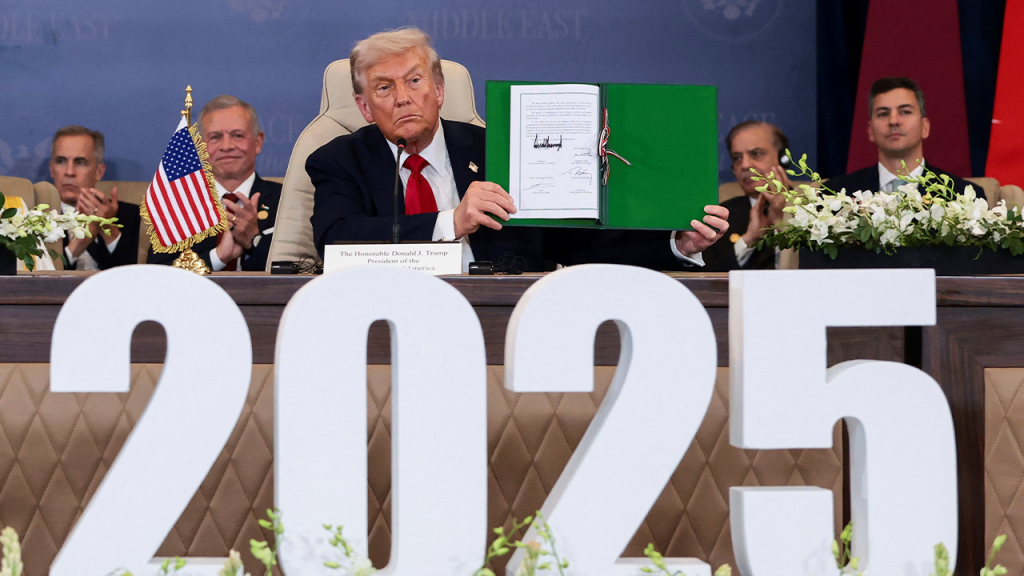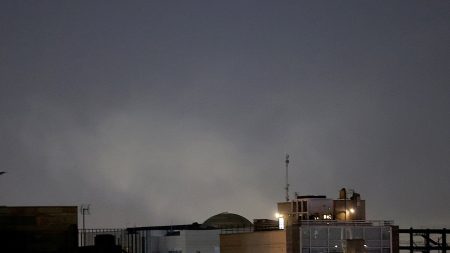U.S. Seeks UN Backing for Gaza Security Plan Through 2027
In a significant diplomatic shift, the United States has brought its Gaza plan to the United Nations Security Council, pushing for formal UN authorization of an international security force that would govern Gaza through at least 2027. This move represents one of Washington’s most substantial decisions in recent years to place the United Nations at the center of a major Middle East security framework. According to the U.S. Mission to the UN, the draft resolution was developed with input from several regional powers including Qatar, Egypt, Saudi Arabia, Turkey, and the United Arab Emirates. The stated goal is to implement President Trump’s “20 Point Comprehensive Plan,” which received support from over twenty countries at a summit in Sharm el-Sheikh on October 13. U.S. officials emphasize that the current ceasefire remains “fragile,” and any delays in establishing this framework would have “grave, tangible, and entirely avoidable consequences for Palestinians in Gaza.”
The scope of the American proposal is ambitious, as revealed in a draft document described as “sensitive but unclassified.” The resolution would establish an International Security Force in Gaza with an initial mandate of at least two years, potentially extending through the end of 2027. A U.S. official told Axios that the plan is to vote on the resolution within weeks, with the goal of deploying the first troops by January. Notably, the official characterized this as “an enforcement force and not a peacekeeping force,” signaling its more robust mandate. The administration appears to be moving quickly, with negotiations having begun with Security Council members in early November to “stand up the International Stabilization Force and begin a stable, secure, peaceful and prosperous future for Palestinians in Gaza, free of Hamas.”
Robert Satloff, executive director of the Washington Institute for Near East Policy, explained that the decision to seek UN authorization stems primarily from practical necessity: several potential troop-contributing nations require a Security Council mandate to participate. “The decision to go to the United Nations was driven principally by the request of participating states, states that the United States hopes will participate in the stabilization force who need a U.N. mandate to help them politically, to dispatch forces eventually to Gaza,” Satloff told Fox News Digital. He acknowledged that while Israel has expressed concerns about UN involvement, Israeli officials understand why Washington sees this step as essential. “There’s no doubt that involving the United Nations has its own complications… But they also appreciate that the United States believes it needs this sort of endorsement for the 20-point plan to move forward.”
The plan faces significant challenges beyond just securing UN approval. Satloff pointed to “fundamental disagreement over, say, the definition of disarmament, which could derail the whole effort.” Nevertheless, he cautioned against pessimism: “The opportunity here is huge. The desire to find solutions among the states that are committed to this is real and serious. So, while it’s totally legitimate to recognize the significant obstacles, I don’t think that we should get negative about the prospects here.” The administration appears to be balancing multiple interests—gaining international legitimacy and troop contributions through UN involvement while attempting to maintain enough flexibility to implement the president’s vision effectively.
Not all observers view the U.S. approach favorably, however. Anne Bayefsky, Director of the Touro Institute on Human Rights and the Holocaust, offered a sharply critical perspective, calling the move “an about-face for American foreign policy on the United Nations and the Arab-Israeli conflict.” She argued that subjecting U.S. plans to UN authorization represents “a blatant power grab” and warned that the resolution could harm “Israeli national security, sovereignty and right of self-defense” while potentially “hamstringing America’s range of action.” Bayefsky particularly criticized the draft for allegedly failing to explicitly condemn Hamas and for not affirming Israel’s right of self-defense under the UN Charter, calling these omissions “devastating to the prospects of real peace.”
Meanwhile, Russia has introduced its own competing draft resolution that diverges significantly from the American proposal. Moscow’s draft demands an immediate and unconditional ceasefire, withdrawal of all foreign forces from Gaza, and deployment of a UN peacekeeping mission under the Secretary-General’s authority—but only with the consent of all parties involved. The Russian proposal also reaffirms the 1967 borders and East Jerusalem as the capital of a future Palestinian state, while insisting that Gaza’s reconstruction must occur under Palestinian leadership and sovereignty, not through externally managed institutions. Unlike the American plan, it contains no provisions for demilitarization or interim foreign governance, focusing instead on “humanitarian relief and international law.” This competing vision highlights the complex geopolitical dynamics at play as different powers advance their preferred approaches to the Gaza situation, creating additional challenges for the U.S. initiative as it seeks Security Council approval in the coming weeks.















